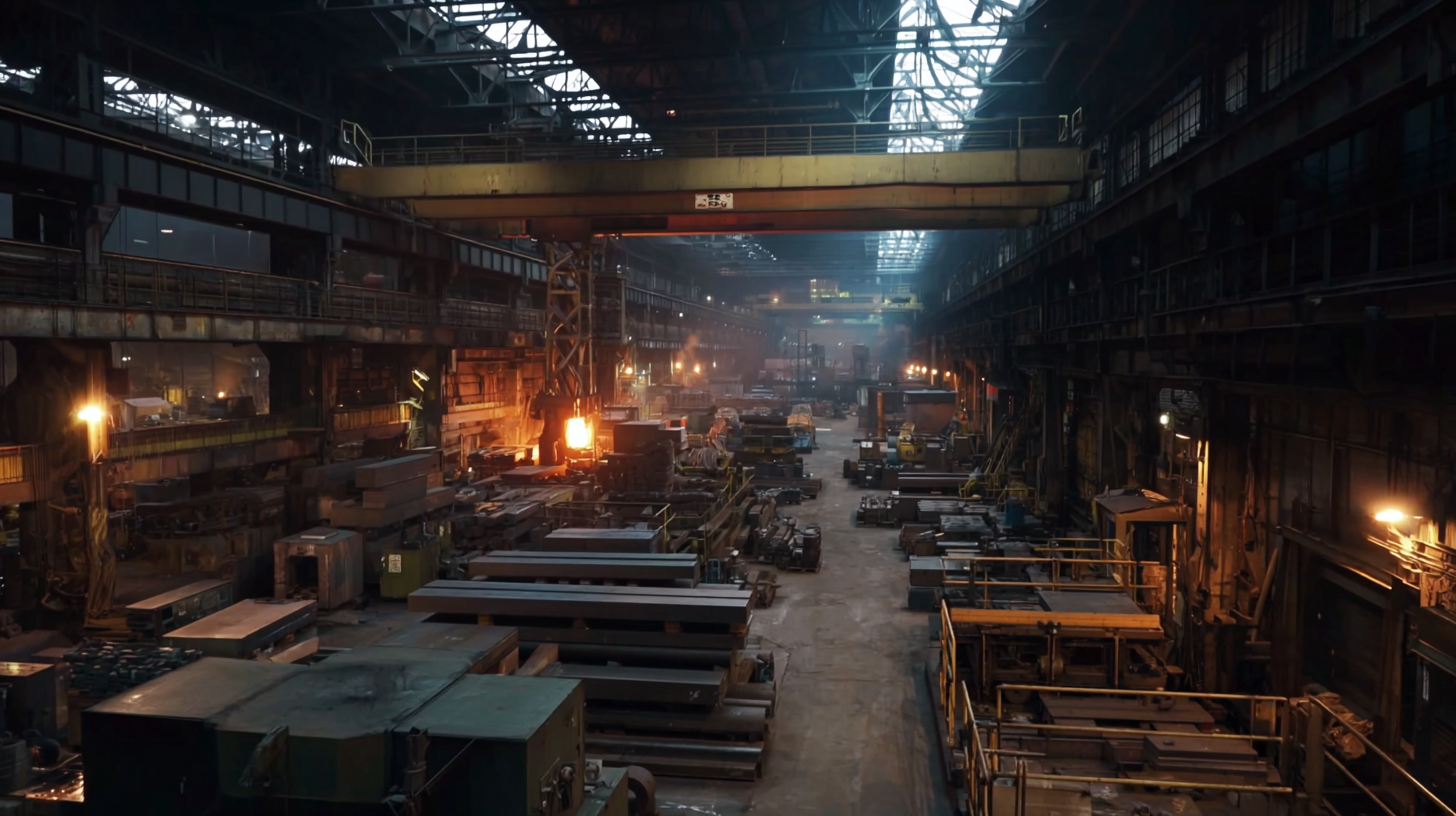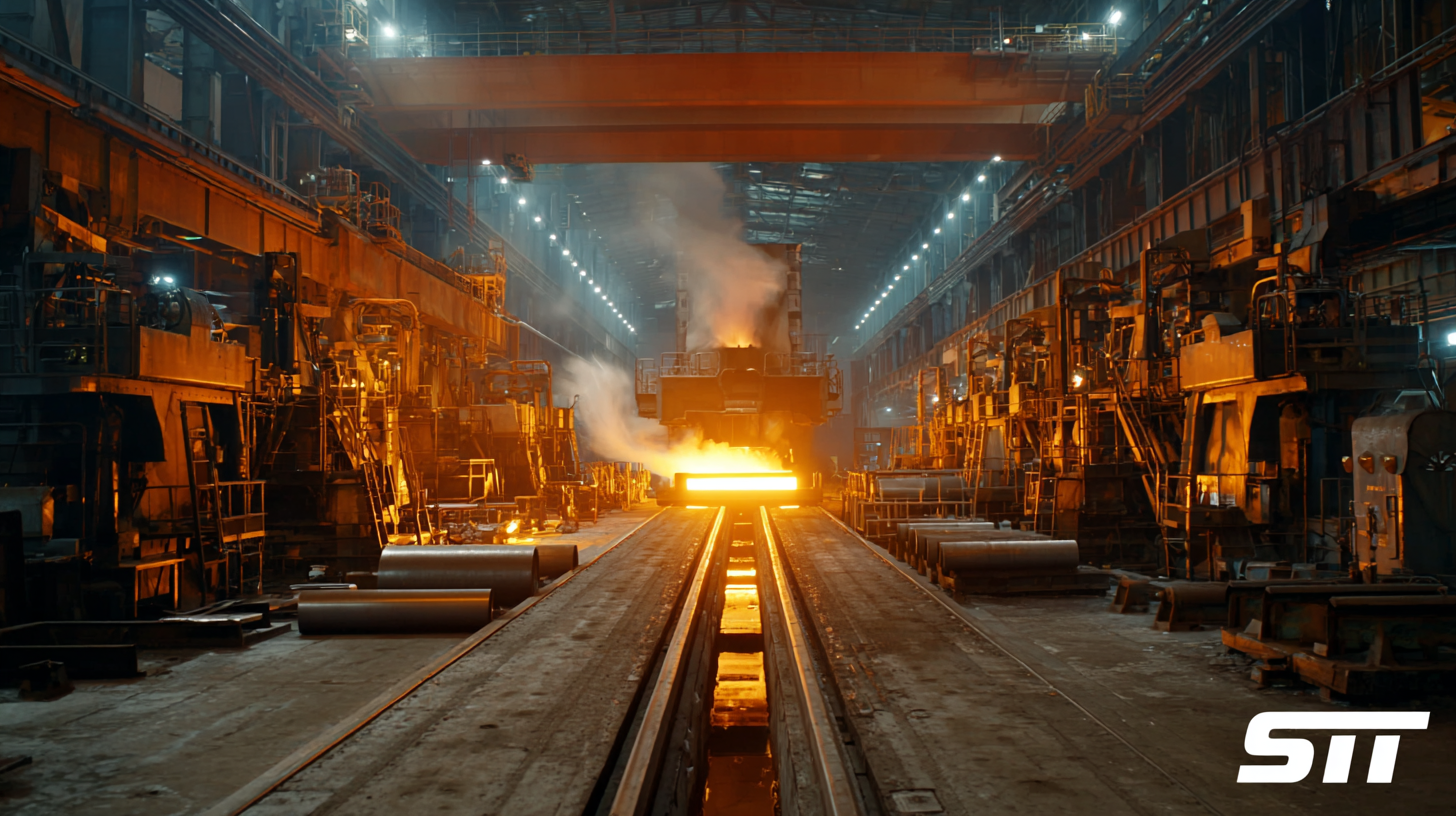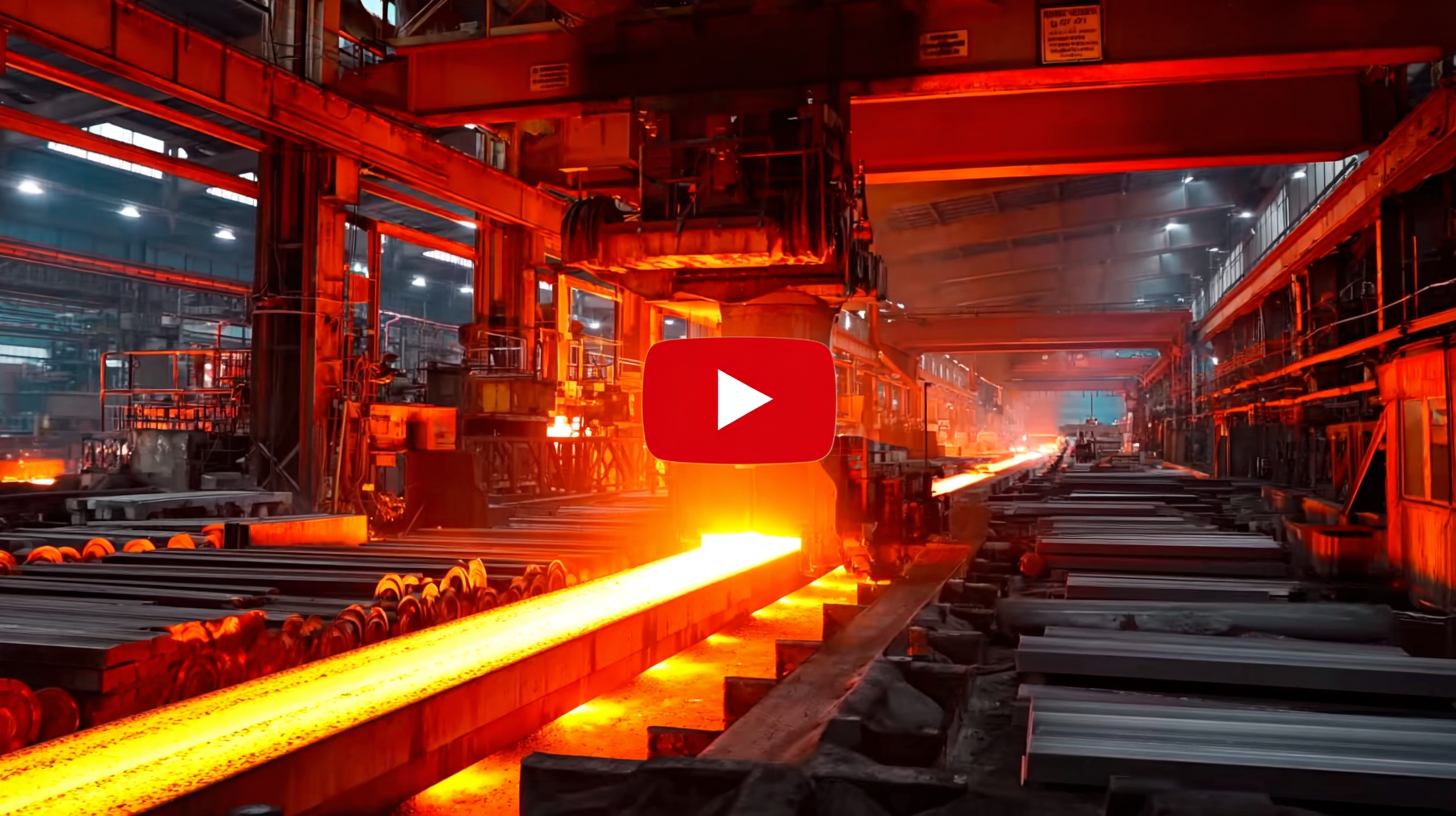
In today's global market, sourcing high-quality steel products is critical for a multitude of industries, ranging from automotive to construction. Identifying the best steel factory that aligns with your specific needs can make all the difference in ensuring your projects' success and sustainability. With a plethora of options available, it becomes imperative to understand the key factors that distinguish reputable steel factories from the rest. This blog delves into the essential criteria for selecting a steel factory, backed by real-world industry applications that illustrate the profound impact of making informed sourcing decisions. By scrutinizing aspects such as production capabilities, quality assurance, and supply chain logistics, you’ll be better equipped to navigate the complexities of global sourcing and forge partnerships that drive your business forward.

When identifying the best steel factory for your global sourcing needs, it's crucial to first understand your specific sourcing requirements for steel products. With the increasing emphasis on sustainability, many companies are now prioritizing low-emission and green steel in their procurement strategies. Recent reports indicate that demand for low-carbon materials is reaching a tipping point, positioning US steelmakers to capitalize on this evolving market landscape.
One important factor to consider is regulatory changes that may affect sourcing. For instance, the US Department of Commerce has introduced a new “Inclusions Process” for companies seeking additions to steel and aluminum tariffs, which underlines the need to stay updated on compliance matters. Similarly, India's recent tightening of procurement rules to favor domestic mills reflects a growing trend towards supporting local industries, which could impact your global sourcing decisions.
Tips:
When it comes to global sourcing, identifying the right steel factory is crucial. The first key factor to evaluate is the factory’s production capacity. Assess whether the facility can meet your volume requirements and if they have the flexibility to adapt to changes in demand. It’s essential to ask about their lead times and how they handle large orders or urgent requests.
Another important aspect is quality assurance. Look for factories that adhere to international standards, such as ISO certifications, and have a robust quality control process. Requesting samples and observing the manufacturing process can provide insights into their commitment to quality. Additionally, consider the factory’s experience in producing the specific type of steel you need, as specialization can significantly impact the end product's performance.
**Tips:** Always check for customer reviews and case studies that showcase the factory’s track record. Engaging in a trial order can also be beneficial to gauge the factory's reliability and product quality firsthand. Lastly, ensure that the factory has effective communication channels to facilitate smooth collaboration throughout the sourcing process.
This bar chart illustrates the key evaluation criteria for selecting the best steel factory for global sourcing needs. The factors include Quality, Cost, Delivery Time, Production Capacity, and Compliance Standards.
When sourcing steel from global suppliers, it’s crucial to assess the quality standards and certifications that a factory adheres to. This is especially important in light of recent developments, such as India’s introduction of mandatory BIS certification for various products, including domestic water heaters and fasteners. Understanding these regulations helps ensure that the products meet specific safety and performance criteria, thus reducing the risk of quality issues in your supply chain.
**Tips:** One effective approach is to prioritize factories that have certifications recognized internationally, such as ISO or similar standards. These certifications often require rigorous audits and compliance processes, which can give you greater confidence in the quality of the steel produced. It’s also advisable to check for any recent changes to quality control norms, as these may affect the manufacturing processes and regulatory requirements for steel products.
Additionally, consider engaging with industry associations or quality control organizations that can provide insights into the best practices in steel manufacturing. This could be invaluable in identifying reliable factories that not only comply with current standards but also proactively adopt newer measures for quality assurance.
| Factory Location | Quality Standards | Certifications | Production Capacity (Tons/Year) | Lead Time (Weeks) | Customer Satisfaction Rating |
|---|---|---|---|---|---|
| China | ISO 9001, ASTM | ISO 14001, OHSAS 18001 | 500,000 | 8 | 4.5/5 |
| India | IS 2062, ISO 9001 | ISO 50001, CE Mark | 300,000 | 6 | 4.2/5 |
| Germany | DIN EN 10025, ISO 9001 | ISO 14001, VDA 6.1 | 200,000 | 5 | 4.8/5 |
| USA | ASTM A36, ISO 9001 | ISO 45001, API Spec Q1 | 400,000 | 7 | 4.7/5 |
In today's global market, sourcing steel effectively requires a keen understanding of cost-effective solutions. Steel production is experiencing significant changes, with recent reports highlighting a downward trend in both output and consumption. Factors such as slower domestic economic growth, a declining real estate market, and reduced manufacturing investment are reshaping the landscape. For companies looking to optimize their sourcing strategies, identifying a steel factory that can navigate these challenges is crucial.

When evaluating potential steel suppliers, it’s essential to assess their adaptability to market fluctuations. A factory that demonstrates flexibility in production capacity and pricing can provide your business with the advantage it needs. Additionally, firms that leverage innovative technologies and sustainable practices are likely to offer more competitive pricing structures. As global trade dynamics evolve, prioritizing suppliers that not only meet your immediate cost requirements but also align with long-term strategic goals will ensure resilience in your sourcing operations.
When embarking on a global sourcing journey for steel, establishing a strong communication framework with potential factory partners is crucial. Effective communication ensures that both parties understand expectations, quality standards, and delivery timelines. It is essential to initiate open dialogues early in the partnership to address any concerns and foster a collaborative environment. Regular check-ins and updates can significantly enhance mutual understanding and trust.

Tips for Successful Communication:
1. Set clear communication protocols: Define how often you will communicate, the preferred channels (e.g., email, video calls), and the key points of contact on both sides.
2. Use visual aids: Diagrams, charts, and photographs can bridge language gaps and convey complex ideas more clearly.
3. Be responsive: Timely responses to inquiries demonstrate commitment and help maintain momentum in discussions.
Support plays an equally important role in factory partnerships. It's vital to assess the level of customer service a factory offers. A partner that provides robust support can navigate challenges more efficiently and adapt to your evolving needs. Building a solid relationship with your factory can lead to better compliance with quality standards and smoother operational processes.
Tips for Ensuring Strong Support:
1. Research the factory's reputation for customer service through reviews and testimonials from past clients.
2. Verify their support structure: Ensure they have dedicated staff for handling inquiries and resolving issues promptly.
3. Discuss contingency plans: Understanding how they manage unexpected problems can give you confidence in their reliability.